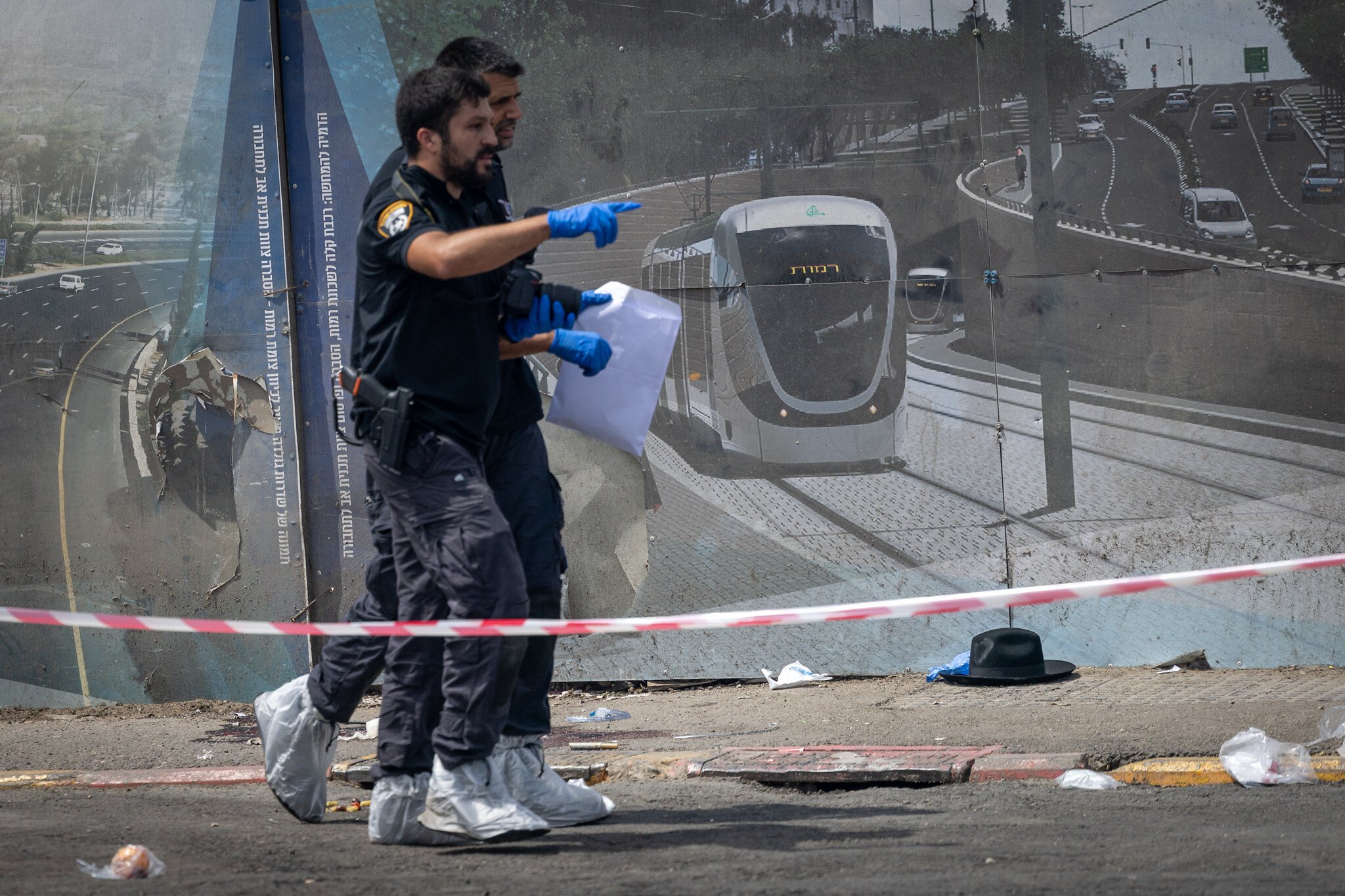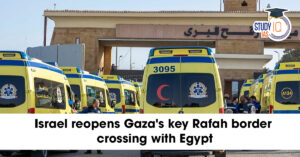Table of Contents
The city of Jerusalem witnessed one of the deadliest terrorist attacks in recent years on 8th September 2025, when two Palestinian gunmen opened fire at a crowded bus stop in the Ramot Junction area. The attack left at least six people dead and over 20 injured, sparking global condemnation and renewed concerns over the fragile security situation in Israel and Palestine.
Prime Minister Narendra Modi, along with several world leaders, strongly condemned the attack, describing it as a “heinous act of terrorism against innocent civilians.” The incident has once again highlighted the volatility of the Israel–Palestine conflict and its wider geopolitical repercussions.
What Happened in the Jerusalem Terrorist Attack?
According to Israeli police, two armed assailants arrived in a car and began shooting indiscriminately at people waiting at a bus stop on Yigal Yadin Street, Ramot Junction.
-
Victims: Among the deceased were three men in their 30s, a 50-year-old man, and a woman in her 50s. Later, a sixth victim succumbed to injuries at the hospital.
-
Injuries: At least 20 others sustained gunshot injuries, with six in critical condition.
-
Response: The attackers were neutralised on the spot by an Israeli soldier and an armed civilian.
Dashcam footage circulating online showed panic-stricken commuters fleeing as shots were fired. Security forces immediately cordoned off the area and launched an investigation.
Weapons and Attackers
Initial reports suggest the attackers used makeshift Carlo submachine guns, commonly seen in West Bank militant attacks. According to officials, both gunmen were Palestinians from villages near Ramallah in the Israeli-occupied West Bank.
Weapons including guns, ammunition, and knives were recovered from the scene. Israeli police also detained a suspect from East Jerusalem for possible involvement.
Reactions to the Attack
Israel’s Leadership
-
Prime Minister Benjamin Netanyahu convened a security meeting with defense chiefs and vowed to hold perpetrators accountable.
-
Opposition leader Yair Lapid condemned the incident, calling it a “terrible terrorist attack” and extended condolences to the bereaved families.
-
Deputy Foreign Minister Sharren Haskel emphasized the importance of arming civilians, arguing that rapid civilian intervention prevented greater casualties.
Global Condemnations
The attack sparked strong reactions from across the world:
-
India: PM Modi reaffirmed India’s zero tolerance towards terrorism and expressed condolences to the families of the victims.
-
Spain: Confirmed that a Spanish citizen was among those killed.
-
France, EU, UAE: Issued statements denouncing the violence and urging de-escalation.
Palestinian Response
-
Palestinian President Mahmoud Abbas condemned attacks on civilians on both sides.
-
Hamas and Islamic Jihad, however, praised the attack as a “heroic operation”, framing it as a response to Israeli occupation, though neither group claimed responsibility.
Why Ramot Junction is Significant
The attack took place in Ramot Junction, a disputed area in East Jerusalem captured by Israel during the 1967 Six-Day War and later annexed—a move not recognized internationally.
Jerusalem’s status remains one of the most contentious issues in the Israel–Palestine conflict. The city is claimed by both Israelis and Palestinians as their capital, making any violence in the region particularly sensitive.
Rising Violence in Israel and Palestine
The terrorist attack comes at a time when the region is already under severe strain:
-
Gaza Conflict: Nearly two years of continuous military operations have caused widespread destruction and civilian casualties in Gaza.
-
West Bank Tensions: Palestinians face increased Israeli military restrictions, while attacks by Jewish settlers have been on the rise.
-
Cycle of Violence: Militant attacks, Israeli military raids, and retaliatory violence have led to one of the bloodiest years in recent memory.
The Jerusalem bus stop shooting adds another chapter to this ongoing cycle of unrest.
International Dimensions of the Attack
The Jerusalem attack has broader diplomatic and geopolitical consequences:
-
Israel’s Security Concerns
-
Calls for stricter border controls and expanded military presence in the West Bank are growing.
-
Pressure is mounting on the Israeli government to respond firmly, which may escalate tensions further.
-
-
India’s Balanced Stance
-
India maintains strong strategic ties with Israel in defense, agriculture, and technology.
-
At the same time, India supports the Palestinian cause and advocates for a two-state solution.
-
Incidents like this test India’s diplomatic balancing act between Arab nations and Israel.
-
-
Global Counter-Terrorism Efforts
-
The attack underscores the challenges of urban terrorism and the need for international cooperation to prevent radicalization and arms smuggling.
-
Humanitarian Impact
Beyond geopolitics, the tragedy underscores the human cost of conflict:
-
Families have been left grieving, including the loved ones of foreign nationals killed.
-
Many injured face long recoveries, both physically and psychologically.
-
Civilians in Jerusalem now live under heightened fear, with increased security checks and restrictions.
Jerusalem Terrorist Attack: Key Takeaways
-
Six killed, more than 20 injured in a shooting at Ramot Junction, Jerusalem.
-
Two Palestinian attackers neutralised; weapons seized.
-
The attack was condemned by India, Spain, France, EU, UAE, and others.
-
Hamas praised the attack but did not claim responsibility.
-
Incident highlights ongoing Israel–Palestine tensions and global concerns over terrorism.
Conclusion
The Jerusalem terrorist attack of September 2025 is not just another episode in the long history of Israel–Palestine violence—it is a stark reminder of how fragile the security situation in the region remains. As world leaders, including Prime Minister Narendra Modi, condemn the attack and extend solidarity, the urgent need for a comprehensive peace process becomes even clearer.
Without dialogue, trust-building, and recognition of humanitarian concerns, the cycle of violence risks escalating further, drawing in regional and global powers. For now, Jerusalem mourns yet another loss, while the world watches anxiously for what comes next.


 Israel Reopens Rafah Border with Egypt: ...
Israel Reopens Rafah Border with Egypt: ...
 Next Phase for Rural Women Entrepreneurs...
Next Phase for Rural Women Entrepreneurs...
 UPSC CSE 2026 New Rules: Complete Guide ...
UPSC CSE 2026 New Rules: Complete Guide ...

























